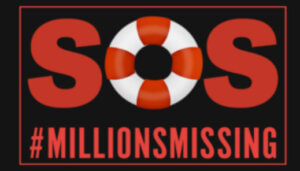David Tuller has published a new article in the Health Affairs blog that summarizes the issues with the conduct of the PACE trial and also examines the ways in which PACE and other studies have impacted the attitudes of doctors and the clinical guidelines used by doctors to treat patients.
Tuller’s series of articles reporting on the flaws in the PACE trial have created an unprecedented level of challenge over PACE’s conduct and conclusions. As Tuller notes, “What makes these public rebukes of PACE so noteworthy is that they take on a well-established treatment paradigm that has, for years, successfully defended itself against vigorous criticism from patients and advocacy groups” despite mounting evidence of serious physiological impairment. And for perhaps the first time, these criticisms are being raised by prominent researchers and clinicians from outside the field. They have requested access to the data and called on Lancet to ensure that an independent review is conducted.
But the PACE story is not just about the conduct of a single trial and it’s not just about research. As Tuller notes, “The PACE results have exerted a major influence on public health policies, clinical treatment guidelines, and societal attitudes, not just in the U.K. but in the U.S. as well.” The U.K.’s National Health Service focuses on CBT and GET while various U.S. clinical guidelines, including those from the CDC, the American Academy of Family Physicians, the Cleveland Clinic, Kaiser Permanente, and UpToDate recommend CBT and GET.
As Tuller notes, these recommendations are based largely on PACE and other Oxford studies. But a recent NIH report said that Oxford could “impair progress and cause harm” and called for it to be retired because it includes patients with other conditions. As I explained to Tuller, “Basing recommendations for ME/CFS on studies like PACE that include patients who do not have ME/CFS is not only bad science but is medically unethical and creates a serious risk of harm” to these patients.
What is especially significant about UpToDate’s clinical guidelines is that they recommend that the IOM criteria be used for diagnosis but then recommend PACE-style CBT and GET for treatment. But the IOM stated that ME/CFS is not psychological or deconditioning and that it is characterized by a systemic intolerance to even trivial activity. A recommendation for PACE-style CBT and GET is clearly inappropriate and creates a risk of harm for patients.
A basic assumption of evidence-based medicine is that the recommendations are based on studies into the same disease. Until medical education providers stop using evidence from studies in patients with other conditions, doctors are going to continue to be misled on the nature of the disease and patients with ME/CFS are going to continue to be at risk of harm.




